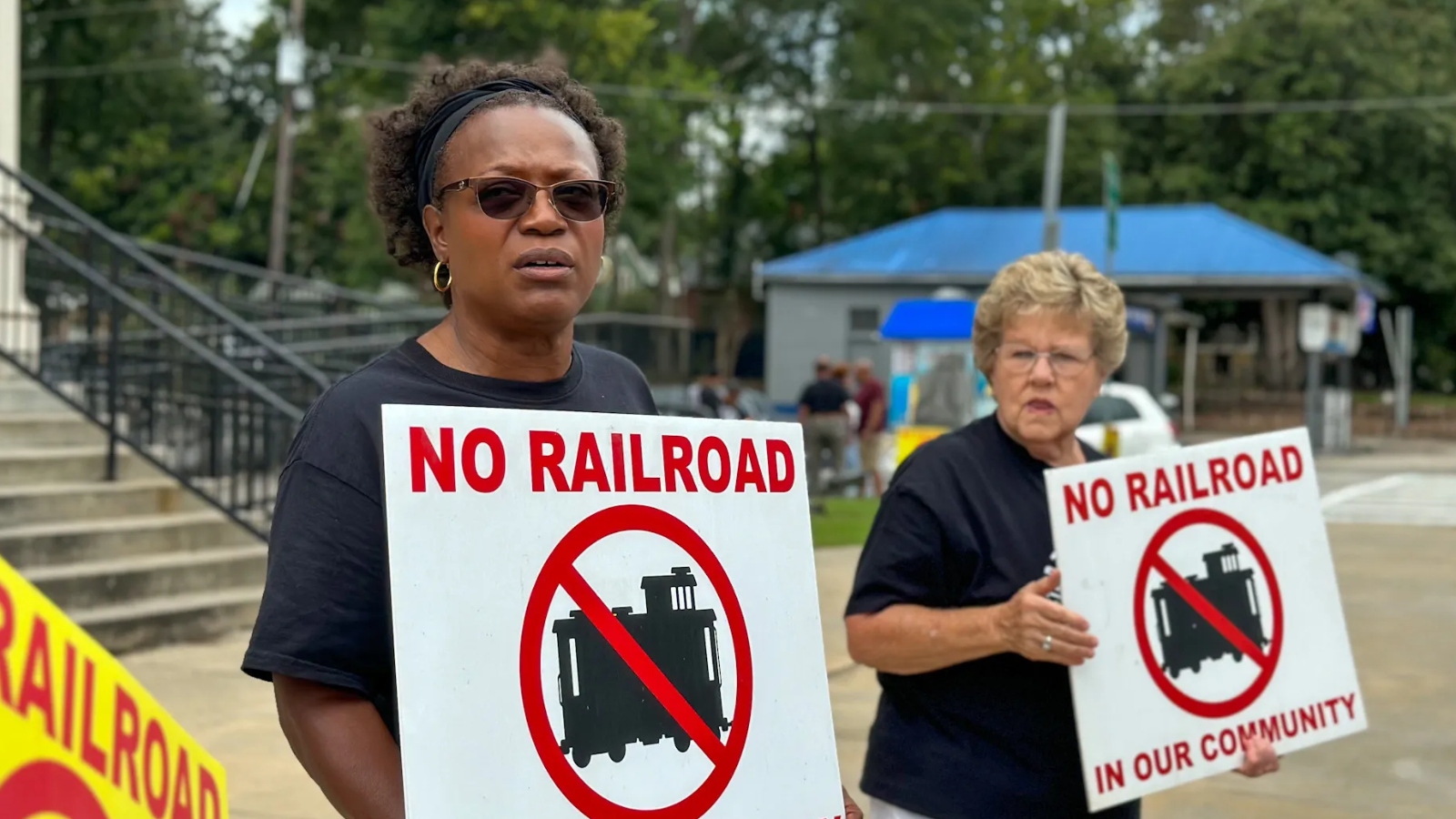
This story was originally published by Capital letter B.
After a year-long legal battle with a railroad company over their land, landowners in a rural, majority-Black town in Georgia may be forced to sell their homes.
In an initial decision on April 1, a Georgia Public Service Commission official approved a proposed rail spur in Sparta. Several property owners refused to sell the land to Sandersville Railroad Co. In March, the century-old, white-owned private railroad company sought to acquire the property by eminent domain — a process that allows the government to take private land for public use. However, property owners must receive fair compensation.
The company petitioned the state’s Public Service Commission to condemn the land parcels of 18 property owners along Shoals Road. The railroad company planned to build a 4.5-mile spur that would connect the Hanson Quarry, a rock mine owned by Heidelberg Materials, with a main train line along a nearby highway. The proposed project would create 20 temporary construction jobs, a dozen permanent positions averaging $90,000 a year in salary and benefits, and bring more than $1.5 million annually to Hancock County.
However, residents in the town of 2,000 told Capital B in September that they did not want to sell their land, or that they feared the potential damage to their homes from the train. Many others say they never received a notice from the railroad company and only found out about the project at a local community meeting last year.
The Georgia Public Service Commission held a three-day hearing in late November. The Institute for Justice, a nonprofit public interest law firm, and residents argued the railroad project is an abuse of eminent domain that does not serve the public or benefit the community.
Benjamin Tarbutton III, Sandersville Railroad president, testified that economic development is important to him and “the American dream starts with a job.” He believes his railroad project will provide jobs, and therefore considers the project a public use.
Bill Maurer, an attorney with the Institute for Justice who represents Sparta property owners, later asked Tarbutton, “Do you think part of the American dream is to have property without it being taken for other people’s use?”
“I’m going to stick with my first comment,” Tarbutton said.
During Sparta native Marvin Smith’s testimony, he also mentioned the American dream. Smith, a military veteran, owns property passed down to him from his father. His grandfather, James Blaine Smith, purchased 600 acres in 1926.
“The American dream says if you play by the rules and work hard, justice will prevail, and you will be rewarded,” he said. “It never occurred to me … over 43 years of playing by the rules … I would end up in a position where my land could be taken by eminent domain.”
Despite the residents’ plea, Thomas K. Bond, hearing officer for the Civil Service Commission, ruled in favor of the railroad company.
“I therefore find and conclude that the proposed condemnation by the Sandersville Railroad serves a legitimate public purpose and is necessary for the proper accommodation of the business of the company,” Bond wrote. “The petition of Sandersville Railroad, as amended, is granted.”
The battle is not over, and the initial decision is not the last say in the matter. Property owners, represented by the Institute for Justice, will challenge the ruling. They have 30 days to appeal.
There have been efforts to make it more difficult for companies to use eminent domain after the widely cited Kelo v. City of New London case. In 2005, the US Supreme Court ruled that the government taking private property to facilitate a private development for economic benefits is considered a public use. Since then, at least 44 states have passed laws to alleviate the abuse.
“When the US Supreme Court issued the unpopular and widely condemned Kelo decided, the Georgia General Assembly passed tough reforms to ensure that nothing like this would happen in this state. Today’s initial decision essentially undoes that work,” Maurer said in a statement. “We will fight to ensure that the people of the state of Georgia are protected from this type of abuse at every stage that we can.”





